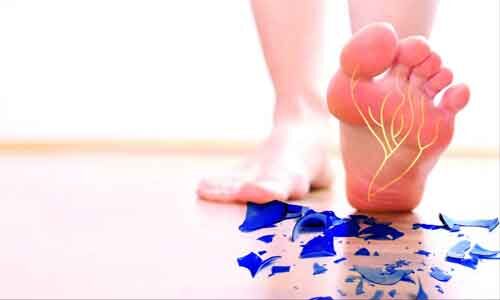- Home
- Medical news & Guidelines
- Anesthesiology
- Cardiology and CTVS
- Critical Care
- Dentistry
- Dermatology
- Diabetes and Endocrinology
- ENT
- Gastroenterology
- Medicine
- Nephrology
- Neurology
- Obstretics-Gynaecology
- Oncology
- Ophthalmology
- Orthopaedics
- Pediatrics-Neonatology
- Psychiatry
- Pulmonology
- Radiology
- Surgery
- Urology
- Laboratory Medicine
- Diet
- Nursing
- Paramedical
- Physiotherapy
- Health news
- Fact Check
- Bone Health Fact Check
- Brain Health Fact Check
- Cancer Related Fact Check
- Child Care Fact Check
- Dental and oral health fact check
- Diabetes and metabolic health fact check
- Diet and Nutrition Fact Check
- Eye and ENT Care Fact Check
- Fitness fact check
- Gut health fact check
- Heart health fact check
- Kidney health fact check
- Medical education fact check
- Men's health fact check
- Respiratory fact check
- Skin and hair care fact check
- Vaccine and Immunization fact check
- Women's health fact check
- AYUSH
- State News
- Andaman and Nicobar Islands
- Andhra Pradesh
- Arunachal Pradesh
- Assam
- Bihar
- Chandigarh
- Chattisgarh
- Dadra and Nagar Haveli
- Daman and Diu
- Delhi
- Goa
- Gujarat
- Haryana
- Himachal Pradesh
- Jammu & Kashmir
- Jharkhand
- Karnataka
- Kerala
- Ladakh
- Lakshadweep
- Madhya Pradesh
- Maharashtra
- Manipur
- Meghalaya
- Mizoram
- Nagaland
- Odisha
- Puducherry
- Punjab
- Rajasthan
- Sikkim
- Tamil Nadu
- Telangana
- Tripura
- Uttar Pradesh
- Uttrakhand
- West Bengal
- Medical Education
- Industry
Combination treatment provides more pain relief than monotherapy in diabetic neuropathy: Lancet

UK: Diabetic peripheral neuropathic pain (DPNP) is characterized by tingling, burning, shooting, sharp, and lancinating or electric shock sensations and is often distressing. Duloxetine, amitriptyline, pregabalin, or gabapentin are generally recommended as an initial analgesic treatment for DPNP.
Considering the little comparative evidence on which one is best or whether they should be combined, Prof Solomon Tesfaye, Sheffield Teaching Hospitals NHS Foundation Trust, Sheffield, UK, and colleagues conducted the largest and longest ever, head-to-head, crossover neuropathic pain trial.
In their study, published in The Lancet, the researchers showed that all three treatment pathways and monotherapies had almost the same analgesic efficacy. Combination treatment improved pain relief and was well tolerated in patients with suboptimal pain control with monotherapy.
The researchers conducted the OPTION-DM trial with the objective to assess the efficacy and tolerability of different combinations of first-line drugs for the treatment of DPNP.
The trial was performed on DPNP patients with a mean daily pain numerical rating scale (NRS) of 4 or higher (scale is 0–10) from 13 UK centers. The researchers were randomized in the ratio of 1:1:1:1:1:1 to receive one of six ordered sequences of the three treatment pathways: amitriptyline supplemented with pregabalin (A-P), pregabalin supplemented with amitriptyline (P-A), and duloxetine supplemented with pregabalin (D-P), each pathway lasting 16 weeks.
Monotherapy was provided for 6 weeks and was supplemented with the combination medication in cases of suboptimal pain relief (NRS >3), reflecting current clinical practice. Titration of both treatments was done towards the maximum tolerated dose (120 mg per day for duloxetine, 75 mg per day for amitriptyline, and 600 mg per day for pregabalin). The difference in 7-day average daily pain during the final week of each pathway was the primary outcome.
252 patients were screened between Nov 14, 2017, and July 29, 2019, 140 patients were randomly assigned, and 130 started a treatment pathway (with 84 completing at least two pathways) and were analyzed for the primary outcome.
The study led to the following findings:
- The 7-day average NRS scores at week 16 decreased from a mean 6·6 at baseline to 3·3 at week 16 in all three pathways.
- The mean difference was –0·1 for D-P versus A-P, –0·1 for P-A versus A-P, and 0·0 for P-A versus D-P, and thus not significant.
- Mean NRS reduction in patients on combination therapy was greater than in those who remained on monotherapy (1·0 vs 0·2).
- Adverse events were predictable for the monotherapies: the researchers observed a significant increase in dizziness in the P-A pathway, nausea in the D-P pathway, and dry mouth in the A-P pathway.
"The trial showed that all three treatment pathways had similar analgesic efficacy with respect to statistical and clinical significance. Also, where needed, the combination treatment was well tolerated and led to significantly better pain relief," the researchers wrote.
"Taken together, this study has great potential to influence treatment guidelines for diabetic peripheral neuropathic pain," they conclude.
Reference:
Tesfaye S, et al "Comparison of amitriptyline supplemented with pregabalin, pregabalin supplemented with amitriptyline, and duloxetine supplemented with pregabalin for the treatment of diabetic peripheral neuropathic pain (OPTION-DM): a multicentre, double-blind, randomised crossover trial" Lancet 2022; DOI: 10.1016/S0140-6736(22)01472-6.
Dr Kamal Kant Kohli-MBBS, DTCD- a chest specialist with more than 30 years of practice and a flair for writing clinical articles, Dr Kamal Kant Kohli joined Medical Dialogues as a Chief Editor of Medical News. Besides writing articles, as an editor, he proofreads and verifies all the medical content published on Medical Dialogues including those coming from journals, studies,medical conferences,guidelines etc. Email: drkohli@medicaldialogues.in. Contact no. 011-43720751


